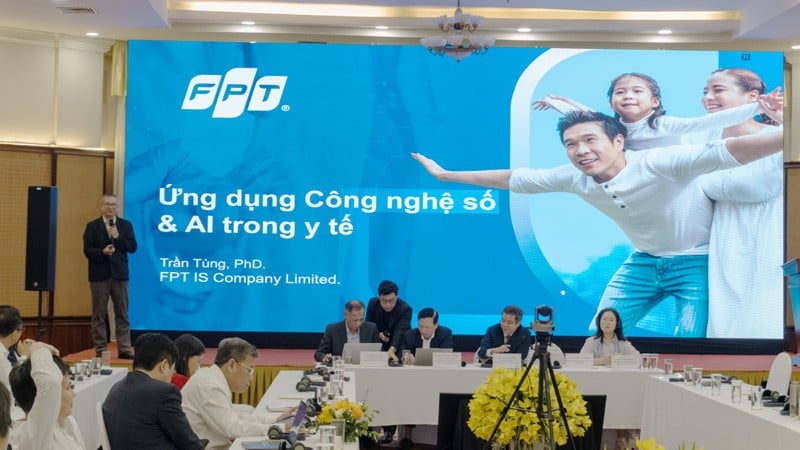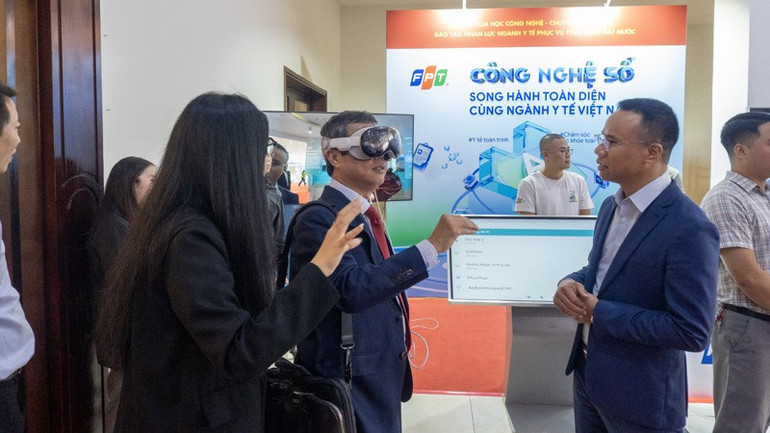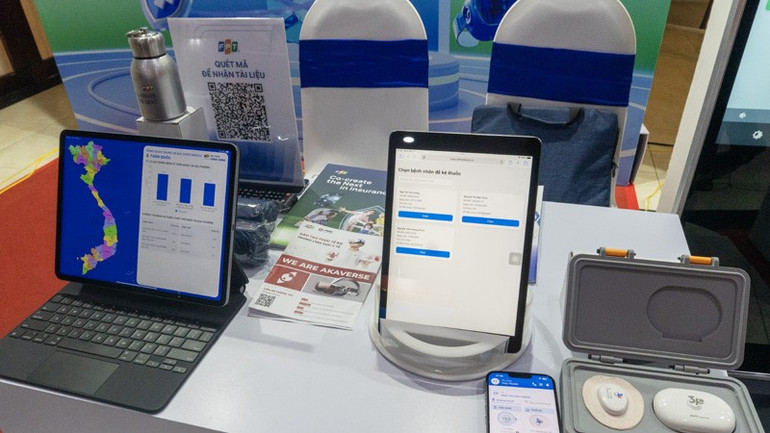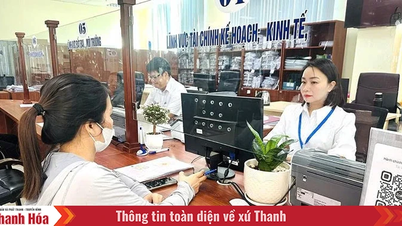
Speaking at the workshop, Deputy Director of the Department of Science, Technology and Training Nguyen Le Phuc said: Artificial intelligence (AI) is becoming a strong driving force to build a healthcare system ready for the future. Recognizing the above importance, the Politburo issued Resolution No. 57-NQ/TW dated December 22, 2024 on breakthroughs in science, technology, innovation and national digital transformation; Resolution 72-NQ/TW dated September 9, 2025 on a number of breakthrough solutions to strengthen the protection, care and improvement of people's health. At the same time, the Government also issued the National Digital Transformation Program to 2025, with a vision to 2030, with the goal of becoming a country with strong innovation in AI in the coming years.

To achieve the above objectives, the Ministry of Health has identified the application of AI in healthcare as one of the key and strategic solutions to support the modernization of the healthcare system, improve the quality of healthcare and patient safety in the era of national development. Therefore, the healthcare sector has applied AI relatively early in a number of areas such as: AI in X-ray, CT, MRI imaging diagnosis...; optimizing treatment regimens; AI supporting cancer treatment; AI is also applied in electronic medical record management; AI in remote medical examination and treatment systems; AI to improve hospital management efficiency; AI in disease forecasting; AI in analyzing and synthesizing medical statistics... Thanks to that, the initial results have brought about positive results, helping to reduce administrative procedures, optimize hospital operations, improve the experience and quality of treatment for people, especially in remote areas, Deputy Director Nguyen Le Phuc added.
Sharing information at the workshop, Dr. Tran Tung, Director of FPT IS Healthcare Digital Transformation Solution Consulting (FPT Corporation) said that as a technology unit with more than 23 years of accompanying the Vietnamese healthcare industry, FPT was honored to attend the event, bringing in-depth perspectives on the application of artificial intelligence and digital technology in the closed healthcare process from home to pharmacy to hospital, and at the same time introducing key technology solutions that are accompanying the healthcare industry.
Regarding the application of artificial intelligence (AI), big data and digital platforms in comprehensive healthcare, technologies such as IoMT, electronic medical records, 5G, big data, blockchain or smart hospital systems are opening up the possibility of real-time connectivity, monitoring and management of healthcare. In particular, AI is considered a key factor for imaging diagnosis, supporting personalized treatment, automating hospital processes, clinical pharmacy and disease prevention, and creating a platform for developing telehealth and remote care.
However, to implement effectively, the health sector needs a synchronous data infrastructure, a complete legal corridor, ensuring security and safety, and developing human resources. Therefore, FPT affirms that it will continue to accompany the Ministry of Health in the journey to build a smart, modern, and sustainable health ecosystem.
Dr. Tran Tung added that FPT's smart hospital ecosystem has accompanied hundreds of hospitals and medical facilities nationwide with FPT.eHospital hospital management solutions. Accordingly, the FPT.eHospital comprehensive hospital management ecosystem includes groups of solution systems such as medical examination and treatment management (HIS), laboratory management group (LIS), diagnostic imaging management group (RIS), image storage and communication (PACS), electronic medical records group (EMR), financial and operational control group, integration and connection group, administration group and smart new application group.

In particular, the electronic medical record management system - FPT.EMR was built by FPT as an independent software, helping medical facilities manage all patient treatment information on the same system, towards a paperless hospital model, a smart hospital.
In addition, within 6 months of 2025, FPT and 70 hospitals nationwide, including many leading hospitals, successfully implemented electronic medical records. Based on the characteristics of each facility, FPT's team of experts built a flexible implementation roadmap, helping hospitals find solutions in converting paper medical records to electronic medical records, contributing to improving the quality of medical examination and treatment of the units.
Source: https://nhandan.vn/xay-dung-he-sinh-thai-y-te-thong-minh-hien-dai-va-ben-vung-post923804.html







![[Photo] General Secretary To Lam and National Assembly Chairman Tran Thanh Man attend the 80th Anniversary of the Traditional Day of the Vietnamese Inspection Sector](https://vphoto.vietnam.vn/thumb/1200x675/vietnam/resource/IMAGE/2025/11/17/1763356362984_a2-bnd-7940-3561-jpg.webp)






























































































Comment (0)